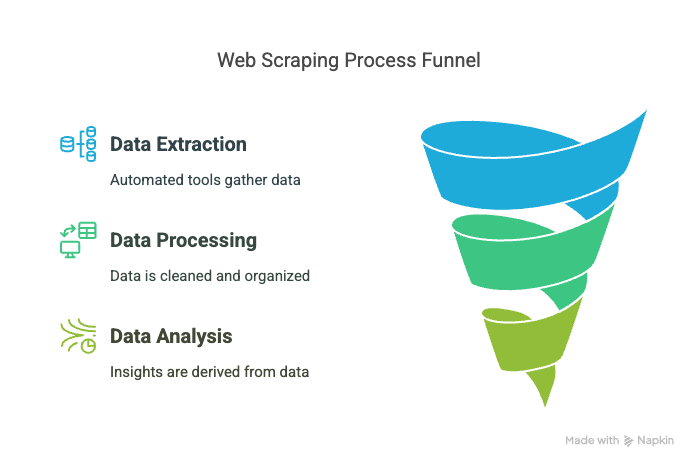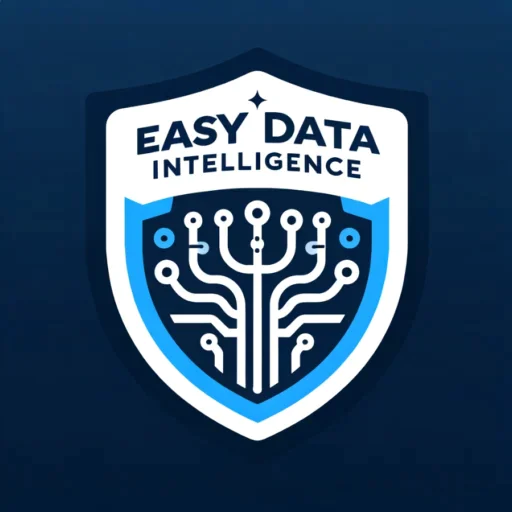Introduction: Why Web Scraping House Prices is Vital for Real Estate Success
In the fast-paced real estate market, staying ahead of pricing trends is crucial for both buyers and sellers. Web scraping house prices provides a powerful way to monitor market fluctuations, track competitor listings, and adjust your pricing strategy accordingly. By automating the data extraction process, businesses in real estate, property investment, and home sales can gather valuable insights into the housing market. In this article, we will explore how web scraping house prices can be used to enhance your real estate business, track trends, and make informed decisions.
- Introduction: Why Web Scraping House Prices is Vital for Real Estate Success
- What is Web Scraping House Prices?
- Key Benefits of Web Scraping House Prices
- How to Scrape House Prices Effectively
- Legal and Ethical Considerations in Web Scraping House Prices
- Conclusion: Optimize Your Real Estate Strategy with Web Scraping House Prices
What is Web Scraping House Prices?
Web scraping house prices refers to the process of using automated tools to extract pricing information and other relevant data from real estate websites, property listings, or home sales platforms. The data collected can include house prices, property details (e.g., square footage, number of bedrooms), location information, and more. This data is typically extracted from multiple sources and then compiled into a structured format for analysis.
Web scraping allows businesses and individuals in the real estate industry to gather large amounts of data quickly, providing them with up-to-date pricing information. Whether you’re a real estate agent, property investor, or data analyst, web scraping is a valuable tool for monitoring housing market trends and adjusting your strategies accordingly.

Key Benefits of Web Scraping House Prices
-
Track Market Trends in Real-Time
One of the primary benefits of web scraping house prices is the ability to track pricing trends in real-time. The housing market can fluctuate rapidly, and staying updated on these changes is crucial for making informed decisions. Web scraping allows you to monitor price trends across different regions, property types, and timeframes, giving you a competitive edge in the market.
Why it’s important: Real-time data helps you stay ahead of price changes and adjust your pricing strategy to align with current market conditions, ensuring that you remain competitive in the real estate market.
-
Competitive Intelligence
In the real estate industry, it’s essential to understand how competitors are pricing their properties. Web scraping house prices allows you to gather data on competitor listings, track their pricing strategies, and identify any pricing patterns. This information helps you determine where your own properties stand in comparison and enables you to make adjustments to attract more buyers or renters.
Why it’s important: Monitoring competitor prices ensures that you are offering competitive and attractive pricing for your listings, which can drive more interest and sales.
-
Real Estate Investment Insights
For real estate investors, web scraping house prices is an invaluable tool for analyzing property values across different neighborhoods and regions. By collecting data on property prices over time, investors can assess the profitability of potential investments and identify emerging areas with increasing demand.
Why it’s important: Web scraping allows investors to gather data on property prices in real-time, enabling them to make informed decisions about where and when to invest in real estate.
-
Dynamic Pricing for Real Estate Listings
Just like in the e-commerce industry, web scraping house prices can help implement a dynamic pricing strategy for real estate listings. By continuously monitoring competitor prices, location-based demand, and other market factors, you can adjust the pricing of your properties in real-time. This ensures that your listings remain competitive and attractive to potential buyers or renters.
Why it’s important: Dynamic pricing helps you maximize revenue and reduce the time a property stays on the market by ensuring that your prices reflect current demand and market conditions.
-
Automated Data Collection and Efficiency
Manually collecting real estate pricing data from multiple websites is time-consuming and inefficient. By using web scraping tools, businesses can automate the entire data collection process. Scrapers can gather data from multiple real estate websites at once, saving time and resources, and providing more comprehensive market insights.
Why it’s important: Automation reduces the time and effort needed for data collection, allowing businesses to focus on analysis and decision-making rather than spending hours gathering data.
How to Scrape House Prices Effectively
To effectively scrape house prices, follow these steps:
1. Choose the Right Web Scraping Tool
There are several web scraping tools available that can help you automate the process of collecting house price data. Some popular tools include:
- Scrapy: A powerful Python framework for large-scale web scraping projects.
- BeautifulSoup: A Python library for parsing HTML and extracting data, ideal for smaller scraping tasks.
- Octoparse: A no-code scraping tool that is user-friendly and perfect for beginners.
- ParseHub: A visual web scraping tool that supports complex websites and dynamic content.
2. Define Your Data Collection Goals
Before you begin scraping house prices, it’s important to define your data collection goals. For example, you might want to collect:
- Property prices by region
- Number of bedrooms, bathrooms, and square footage
- Location information (neighborhood, city, etc.)
- Property status (sold, for sale, pending, etc.)
Having a clear understanding of the data you need ensures that your scraping tool collects only the relevant information.
3. Set Up Scraping Parameters
Once you’ve selected a scraping tool and defined your goals, configure the tool to scrape the desired websites. Key parameters to set up include:
- Target websites: Specify which real estate websites or property listing pages you want to scrape.
- Scraping frequency: Decide how often you want to collect data (e.g., daily, weekly).
- Output format: Choose the format in which you want the data to be saved (e.g., CSV, Excel, or database).
4. Run the Scraper
After setting up the tool, run the scraper to start collecting data. Many scraping tools allow you to schedule scraping tasks, so they can run automatically at specified intervals. Monitor the process to ensure that the data is being collected correctly.
5. Analyze and Use the Data
After scraping house prices, you’ll need to clean and analyze the data. Use tools like Excel or business intelligence platforms to organize the data and extract insights. For example, you can use the data to analyze price trends in different neighborhoods or determine the average price for a specific type of property.
Legal and Ethical Considerations in Web Scraping House Prices
While web scraping house prices offers many benefits, it’s important to follow legal and ethical guidelines:
- Check Website Terms of Service: Always review the terms of service for the websites you plan to scrape. Many real estate websites may have restrictions on scraping.
- Respect Robots.txt: Ensure that your scraper follows the robots.txt file, which indicates which parts of a website can be scraped.
- Data Privacy: Be mindful of data privacy laws such as GDPR when scraping personal information from websites.

Conclusion: Optimize Your Real Estate Strategy with Web Scraping House Prices
Web scraping house prices is a powerful tool for real estate professionals looking to track market trends, monitor competitor pricing, and optimize their pricing strategies. By automating the collection of real estate data, businesses can save time, reduce costs, and make more informed decisions. Whether you’re an agent, investor, or property manager, web scraping can provide you with the insights you need to stay competitive in the housing market.
For more information on how Easy Data can help with your web scraping needs, visit EasyData.io.vn.
External Links


Leave a Reply